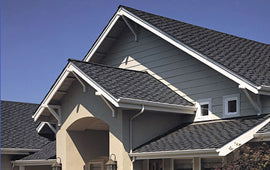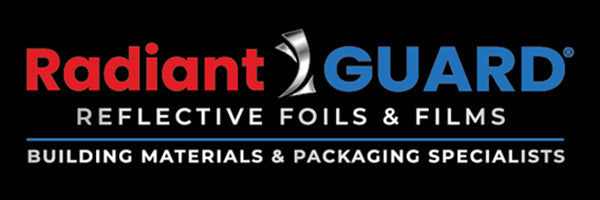Summary: Radiant Barriers DON'T harm roofing materials or void shingle warranties.
 Because radiant barriers reflect the radiant heat rays that strike them back in the opposite direction from which they came, modest concerns have been raised about the possible increase in roofing temperatures and the effect of increased temperatures on roof shingles.
Because radiant barriers reflect the radiant heat rays that strike them back in the opposite direction from which they came, modest concerns have been raised about the possible increase in roofing temperatures and the effect of increased temperatures on roof shingles.
According to the Reflective Insulation Manufactures Association's independent study, a radiant barrier may cause an increase in shingle temperature between 2-5 degrees Fahrenheit on a hot summer day. Given that shingle temperature at that time is in the range of 160-190 degrees, this increase is negligible and does not accelerate shingle degradation. Although roofing manufacturers were concerned about shingle failure in the years when radiant barriers were first used, it is no longer an issue. Roofing material warranties are not affected by the installation of radiant barriers.
The Florida Solar Energy Center also conducted a study on the use of radiant barriers under shingle roofs and found that properly installed radiant barriers do not void the warranty for the shingles.
An interesting fact about roof temperatures and buildings WITHOUT radiant barriers:
Without a radiant barrier in place, radiant energy from the sun heats the roof decking and then radiates from the roof decking into an attic and is absorbed by any existing heat absorbing insulation in the attic. As the sun sets and the attic temperature begins to level itself with the outdoor ambient temperature, the attic insulation is still radiating the heat it has absorbed throughout the day.
In essence, the heat absorbing insulation is similar to a hot piece of coal in your attic that is slowing emitting heat throughout the early evening therefore, extending an increase in roof temperatures into the early evening than if a radiant barrier had been in place.
Without a radiant barrier in place, your existing insulation and roof stay hotter into the early evening causing your air conditioning system to work harder and longer into the evening to keep your home cool.


 Because radiant barriers reflect the radiant heat rays that strike them back in the opposite direction from which they came, modest concerns have been raised about the possible increase in roofing temperatures and the effect of increased temperatures on roof shingles.
Because radiant barriers reflect the radiant heat rays that strike them back in the opposite direction from which they came, modest concerns have been raised about the possible increase in roofing temperatures and the effect of increased temperatures on roof shingles.